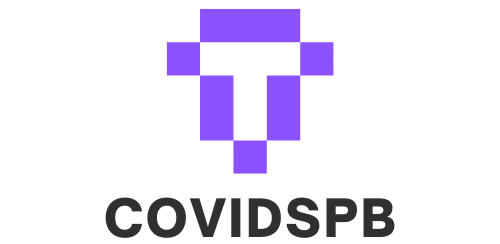What Are the Ethical Considerations of Surveillance Drones in Public Spaces?

Surveillance technology is evolving at an unprecedented pace, and the integration of drones into public safety measures and law enforcement strategies is transforming the landscape of public surveillance. Drones, or unmanned aerial vehicles (UAVs), offer an elevated vantage point that can capture high-resolution images and video from the air. Police departments and other enforcement bodies are increasingly deploying drones to aid in various tasks, from traffic management to criminal pursuits. However, this integration of drone technology into public surveillance raises pressing ethical questions and considerations. Balancing the benefits of drone surveillance with potential threats to privacy and civil liberties is a complex task requiring thoughtful deliberation and meticulous regulation.
How is Drone Technology Used in Surveillance?
Drones are becoming a cornerstone of modern surveillance systems. Small, quiet, and capable of reaching areas that are inaccessible or dangerous for humans, these remote-controlled devices offer a myriad of benefits. They can provide real-time video feeds to law enforcement agencies, enable faster response times in emergency situations, and even support disaster management efforts.
Also to read : 5 Essential Tips for Planning a Birthday Event
Public bodies are not the only ones benefiting from this technology. Private security companies are using drones to guard properties, monitor crowds, and investigate incidents. The media industry uses them to gather news and capture aerial perspectives. Even academic scholars and researchers use drones for scientific observations and data collection.
These use cases underscore the versatility and potential utility of drone technology. However, they also highlight the need for careful ethical scrutiny and regulation.
Also to read : How Is Artificial Intelligence Revolutionizing Language Translation Services?
Unpacking the Ethical Considerations of Drone Surveillance
The use of drones for surveillance in public spaces is a complex issue with multifaceted ethical considerations. At the forefront of these concerns is the potential infringement upon individual privacy rights.
Privacy is a fundamental human right, protected by law in many jurisdictions. The aerial reach and sophisticated data capture capabilities of drones can erode this privacy. Unregulated drone surveillance can lead to unwarranted intrusions into people’s private lives, from capturing images of individuals in their backyards to recording private gatherings. The potential for misuse of this technology for illicit surveillance or data collection is a significant ethical concern.
Another ethical consideration is potential misuse by law enforcement or other public bodies. Without stringent regulation and oversight, drone surveillance can become a tool for invasive, indiscriminate monitoring of the public. This could lead to discrimination, harassment, or other forms of misuse.
Legal Considerations and the Evolution of Surveillance Law
The law is often slow to adapt to new technologies, and this is evident in the context of drone surveillance. Many jurisdictions lack comprehensive laws regulating the use of drones in public airspace, presenting a legal void that can be exploited.
Current laws often fail to address the unique challenges posed by drone technology. For example, traditional surveillance law focuses on ground-based observation and does not adequately address aerial surveillance. Similarly, data protection laws may not fully cover the types of data that drones can capture.
In response to these challenges, lawmakers are grappling with how to evolve surveillance laws to encompass drone technology effectively. Key areas of focus are defining what constitutes a reasonable expectation of privacy in the age of drones, determining the appropriate level of regulation for different uses of drone technology, and establishing robust oversight mechanisms to prevent misuse.
Balancing Public Safety with Respect for Civil Liberties
The final piece of the ethical puzzle involves striking an appropriate balance between public safety benefits and respect for civil liberties. Drones can undoubtedly provide valuable assistance in ensuring public safety. They can help police respond more quickly to crimes, assist in search and rescue operations, and support disaster management efforts.
However, these benefits must be weighed against the potential risks to civil liberties. The threat of pervasive, indiscriminate surveillance could create a chilling effect on free speech and assembly, while the potential misuse of drones by authorities could lead to abuses of power.
Public engagement and transparent decision-making are vital in navigating this balance. Policymakers must engage with all stakeholders – including the public, civil liberties groups, and law enforcement – to develop regulations that maximize the benefits of drone technology while minimizing its risks. The aim should be to create a surveillance environment that respects privacy and civil liberties, promotes accountability, and serves the public interest effectively.
In conclusion, the integration of drones into public surveillance systems is an issue of considerable ethical complexity. It necessitates careful deliberation, robust legal frameworks, and a commitment to balancing public safety with respect for privacy and civil liberties. As this technology continues to evolve, so too must our understanding and regulation of its use.
Environmental Monitoring and Drone Technology
Environmental monitoring is another area where drone technology is extensively used and where ethical considerations are paramount. Drones are capable of collecting in-depth data about environmental conditions, from tracking wildlife migration patterns to monitoring air quality. They can access remote or hazardous areas, providing crucial insights for environmental scientists and local communities.
Google Scholar and Grey Literature are rich with studies and reports highlighting the use of drones for environmental monitoring. For instance, drones have been used in systematic reviews of forest health, assessing impact of natural disasters, and in the study of marine ecosystems. Furthermore, drones have become indispensable tools for environmental health assessments, particularly in areas impacted by industrial pollution or natural disasters.
However, despite these benefits, the use of drones in environmental monitoring also raises ethical questions. The same technology that can study wildlife can also potentially disturb them, violating their rights to privacy and potentially disrupting their natural behaviors. Local communities, too, might have concerns about continuous drone flights, which may be seen as intrusive or disruptive.
In line with the Fourth Amendment and human rights principles advocated by the United Nations, the use of drone technology for environmental monitoring should be subject to stringent oversight and regulation to prevent misuse and ensure respect for all stakeholders.
Police Drones: Striking the Right Balance
The use of drones by police officers is a contentious issue. While they can significantly enhance safety and security, they also raise significant privacy concerns.
Police departments worldwide are using drone technology for a variety of purposes. They are incredibly beneficial in scoping reviews of large, potentially dangerous areas, and can provide critical intelligence during high-risk operations. For instance, police drones can help in the search for missing persons, oversee large crowds during public events, or pursue suspects during a criminal pursuit.
However, the potential for misuse is significant. Without proper regulation and oversight, these unmanned aerial vehicles could easily be used for illicit surveillance or infringe on the privacy rights of individuals. Concerns about potential Fourth Amendment violations are particularly relevant in the United States, where the amendment protects citizens from unreasonable searches and seizures.
On a broader scale, the United Nations has observed the need for robust regulations on drone use to ensure it aligns with international human rights standards. Striking the right balance between ensuring public safety and respecting individual rights is a complex task that requires a committed, transparent effort from all stakeholders, including law enforcement agencies, legislators, and local communities.
Conclusion
The rise of drone technology presents a host of ethical considerations that our society must carefully navigate. While drones offer unquestionable benefits, from enhancing public safety to monitoring our environment, they also carry potential threats to privacy and civil liberties.
The Fourth Amendment, human rights principles, and various international guidelines provide a foundation for understanding how to balance these interests. However, the rapid pace of technological innovation necessitates ongoing discussions and adjustments to these frameworks. Policymakers, law enforcement, local communities, and all other stakeholders must work together to develop regulations that respect privacy, ensure safety and security, and make the most of this transformative technology. As we move forward, transparency, accountability, and respect for all parties will be crucial in shaping the ethical use of drone technology in public spaces.
